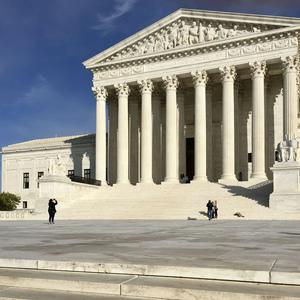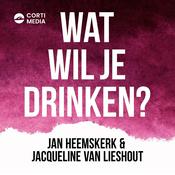518 afleveringen
- Send us a text
The Court unanimously held that restitution imposed under the Mandatory Victims Restitution Act is a form of criminal punishment, meaning it cannot be applied to conduct that occurred before the statute was enacted without violating the Ex Post Facto Clause. Although Ellingburg’s offense predated the MVRA, he was sentenced under it and ordered to pay restitution. The Eighth Circuit had treated MVRA restitution as a civil, nonpunitive measure, but the Supreme Court rejected that view. Looking to the statute’s text, structure, and placement within the criminal code, the Court emphasized that restitution is imposed only on convicted defendants, at sentencing, alongside imprisonment and fines, and through procedures governing criminal penalties. Prior precedents likewise treated MVRA restitution as punitive. While restitution also serves compensatory aims, victims cannot control or negotiate it as they could in a civil action, underscoring its criminal nature. The Court therefore reversed and remanded. - Send us a text
1. The Court has jurisdiction because §2244(b)(3)(E) does not bar this Court’s review of a federal prisoner’s request to file a second or successive §2255 motion. Pp. 5–19. (a) Section 2244(b)(3)(E) provides that the denial of authorization “to file a second or successive application” shall not be the subject of a certiorari petition. That provision does not apply to federal prisoners. It is housed within §2244, which imposes several strict requirements that apply only to state prisoners. - Send us a text
Supreme Court refuses to assume that Congress intended to disregard Blockburger and allow someone to be convicted of two crimes in the same statute. Congress' clear intent here was to create two potential sentencing schemes, not allow someone to be convicted twice.
Meer Onderwijs podcasts
Trending Onderwijs -podcasts
Over Supreme Court Decision Syllabus (SCOTUS Podcast)
Following what the Supreme Court is actually doing can be daunting. Reporting on the subject is often only done within the context of political narratives of the day -- and following the Court's decisions and reading every new case can be a non-starter. The purpose of this Podcast is to make it as easy as possible for members of the public to source information about what is happening at the Supreme Court. For that reason, we read every Opinion Syllabus without any commentary whatsoever. Further, there are no advertisements or sponsors. We call it "information sourcing," and we hope that the podcast is a useful resource for members of the public who want to understand the legal issues of the day, prospective law students who want to get to know legal language and understand good legal writing, and attorneys who can use the podcast to be better advocates for their clients. *Note this podcast is for informational and educational purposes only.
Podcast websiteLuister naar Supreme Court Decision Syllabus (SCOTUS Podcast), Omdenken Podcast en vele andere podcasts van over de hele wereld met de radio.net-app

Ontvang de gratis radio.net app
- Zenders en podcasts om te bookmarken
- Streamen via Wi-Fi of Bluetooth
- Ondersteunt Carplay & Android Auto
- Veel andere app-functies
Ontvang de gratis radio.net app
- Zenders en podcasts om te bookmarken
- Streamen via Wi-Fi of Bluetooth
- Ondersteunt Carplay & Android Auto
- Veel andere app-functies


Supreme Court Decision Syllabus (SCOTUS Podcast)
Scan de code,
download de app,
luisteren.
download de app,
luisteren.




































